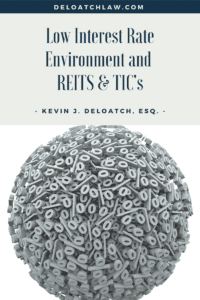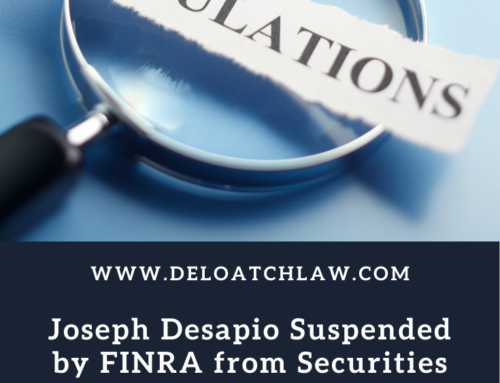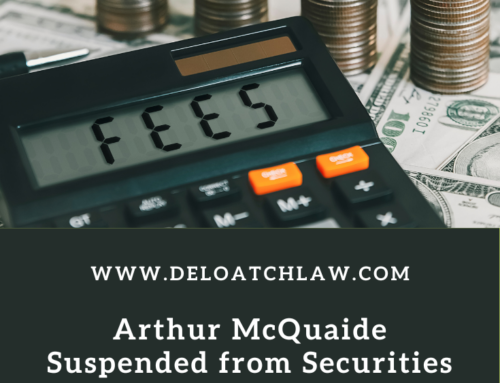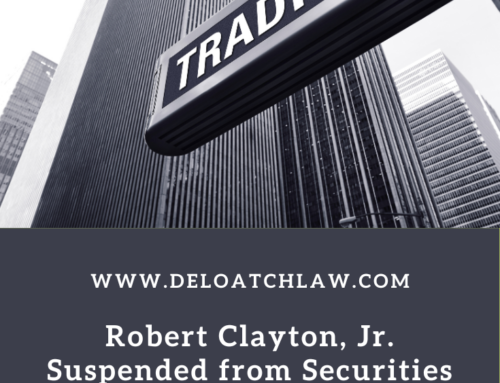 With interest rates at historic lows over the past two decades, has your broker recommended the purchase of either a real estate investment trust (REIT) or tenant-in-common (TIC) security? Did your broker talk glowingly about the attractive yields of these securities in comparison to other fixed-income investments? Did your broker fail to properly apprise you of the risks associated with these securities? If you answered yes to any of these questions, you may have become the victim of a broker taking advantage of the low interest rate environment to sell risky investment products for their benefit.
With interest rates at historic lows over the past two decades, has your broker recommended the purchase of either a real estate investment trust (REIT) or tenant-in-common (TIC) security? Did your broker talk glowingly about the attractive yields of these securities in comparison to other fixed-income investments? Did your broker fail to properly apprise you of the risks associated with these securities? If you answered yes to any of these questions, you may have become the victim of a broker taking advantage of the low interest rate environment to sell risky investment products for their benefit.
The financial crisis of 2008 spurred the U.S. into aggressive actions to both stabilize and stimulate the economy. To prevent the economy from coming to a grinding halt, the Federal Reserve lowered interest rates to historic levels, allowing businesses to borrow cheaply and invest. But these historically low interest rates also negatively affected many investors by reducing the rates on safe interest bearing investments, such as certificates of deposit (CD’s), money markets and bonds.
In the current low interest rate environment, some unscrupulous brokers and broker-dealers have inappropriately recommended securities, like certain types of REITS and TIC’s which have levels of risk that are unsuitable for the average investor. Moreover, the risk levels of these securities often are either minimized through misrepresentation or not fully explained.
Indeed, certain private non-exchange traded REITS and TIC’s have been at the center of many investor complaints and arbitrations in the past decade.
What Exactly are REITS and TIC’s?
REITS are companies/entities that are formed from contractual arrangements that pool the assets of investors to purchase and manage a portfolio of income producing properties. REITS are considered investment contracts and thus securities, because the contractual arrangements allow the investors to derive the benefits from the active management of the properties by the efforts of others. While some REITS are registered with the Securities & Exchange Commission (SEC) and the Securities Act of 1933 (the Act) and are traded on an exchange (i.e. exchange traded REITS), private non-exchange traded REITS are not registered with either.
Like private non-exchange traded REITS, TIC’s are investment contracts/securities based upon real estate and/or real property. However, they allow multiple investors to invest in undivided fractional interests in rental real property by pooling assets and sharing in the risks and benefits of the enterprise. While the investors share in the risks and benefits of the investment, the actual day-to-day work of running/managing the actual properties is from the efforts of others. Similarly, TIC’s are unregistered.
Private Non-Exchange Traded REITS and TIC’s are Risky Securities
Private non-exchange traded REITS and TIC’s are generally riskier than securities that are traded on exchanges. As previously indicated, they are unregistered securities. Because of their lack of registration, they are not required by the SEC to disclose all known material risks about the securities/issuer in their offering documents (i.e. private placement memorandum – “PPM”) when sold to investors. Consequently, they are unable to be sold to the general public or trade on an exchange. Rather, they are sold through some other offering mechanism, such as a private placement offering – a topic discussed under another blog (Private Placement Securities: Are they Suitable for You?).
Because private non-exchange traded REITS and TIC’s typically cannot be sold to the general public, investors must meet certain requirements to purchase these types of securities. Moreover, there generally isn’t a secondary market for these securities, once purchased. This in turn makes these investments extremely illiquid, as investors are unable to sell the security when they desire or need to. Consequently, an investor may lose all or a substantial amount of their investment without being able to act to preserve their principal.
In addition to the above, REITS and TICS are subject to the myriad risks associated with the purchase and holding of real estate and real property. Examples of such risks include financing, equipment failure and natural disasters, all of which can change drastically in short periods of time and have a significant negative impact on the investments valuation.
The Unscrupulous Broker
As a result of the risks inherent in private non-exchange traded REITS and TIC’s, they tend to have greater yields than safer interest bearing investments in order to compensate someone for the increased risk – “the greater the risk, the greater the reward.” In a prolonged low interest rate environment, like what the U.S. is currently experiencing, many investors desperate for yield have found themselves the victims of unscrupulous brokers. A common sales-practice (violation) of these brokers is to emphasize the greater returns of these investments in comparison to other safer fixed income investments, while downplaying or in some extreme cases, completely misstating the level of risk. The result being many investors in need of income and safety to principal purchasing securities that are completely unsuitable for their needs and risk tolerance.
Broker-dealers and brokers who engage in such actions are violating the rules of the securities industry and placing their self interests ahead of their clients’. Broker-dealers that sell these types of securities typically have a compensation agreement with the issuer in which the broker-dealer and broker can earn substantial fees/commissions for selling the securities. Thus, it benefits them to sell as much of the securities they have in their inventory. This in turn often creates a conflict of interest between the broker-dealer and the purchasers of the securities. Private non-exchange traded REITS and TIC’s structured with high up-front fees and expenses paid to the sponsor and/or salespersons of the selling broker-dealers raises particular concerns about the ability to make a suitable recommendation.
Pursuant to FINRA rules and regulations, brokers and broker-dealers are obligated to follow the general suitability requirements under FINRA Rule 2111 when recommending securities. In addition to such, when making a suitability determination, a FINRA member must also consider whether the fees and expenses associated with the transactions outweigh the potential benefits to the customer.
Best Practices As an Investor
Don’t let a low interest rate environment allow you to be the victim of an unscrupulous broker. As an investor, it is always best practice to review PPM’s, your account holdings and suitability information to determine the appropriateness of a securities recommendation and your portfolio holdings. Also, you should never be afraid to ask your broker questions about your account(s) and holdings. Indeed, these are the first steps in determining whether you were the victim of an unscrupulous broker. If you believe you may have been victimized, your next step should be to seek the advice of an experienced legal professional in the securities industry.
The Law Office of Kevin J. Deloatch, Esq. has an extensive securities law practice and over 30 years of experience on Wall Street. If you believe your were the victim of fraud and would like a free consultation, call today at (646) 792-2156. If there is a basis for filing a claim your time may be limited. Call today to avoid delay.








